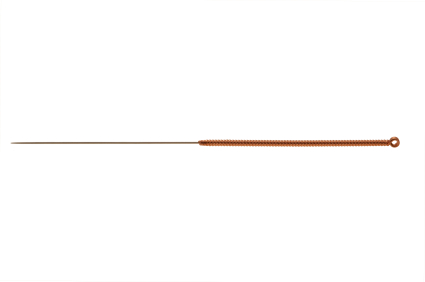Ask the Acupuncturist

By Toby Helmstetter, LAc
Here's our first installment of the "Ask the Acupuncturist" column! This question comes from a patient in our Chapel Hill office....
Question: Are copper acupuncture needles better than other types of metal needles for treatment?
Typically as acupuncturists we get asked questions about different health conditions and whether or not acupuncture can help. I picked this one because it was a great technical question about the tools we use--something most people wonder about but never ask.
There are many, many different types of needles. They come in different lengths and gauges, have different types of handles, cost different amounts by different manufacturers and even come from different countries. Before we talk about the differences, let me point out the similarities among all acupuncture needles:
- They are solid, not hollow
- They are sterile for one-time use
- They are disposable
When you look at an acupuncture needle, there are two parts, the shaft and the handle. In general the shaft of a needle is made of stainless steel, but it is the handles where we find the greatest variation. There are copper handles, stainless steel handles and even plastic handles. Some handles are coiled while others are smooth. Couple these differences with the various lengths and gauges and you have a great tool that allows the practitioner to choose the most appropriate needle for the patient and even the location on the body where the needle is to be inserted.
Many companies tout that they have created the perfectly painless needle. But as I learned in acupuncture school, it really is the technique of the practitioner, more than the needle itself, that makes the difference on insertion. While in acupuncture school, one of my native-Chinese teachers was asked by a student, "Jeffrey, what type of needles do you use?" His response was eye-opening: "Cheapest!" he replied.
All that being said, each practitioner certainly has their preference for a certain type of needle. And some patients certainly are more sensitive to the needles than others. In which case, each practitioner will choose different needles based on their and their patient's needs. But in truth, one needle really isn't better than any other; it's more a matter of personal preference.


